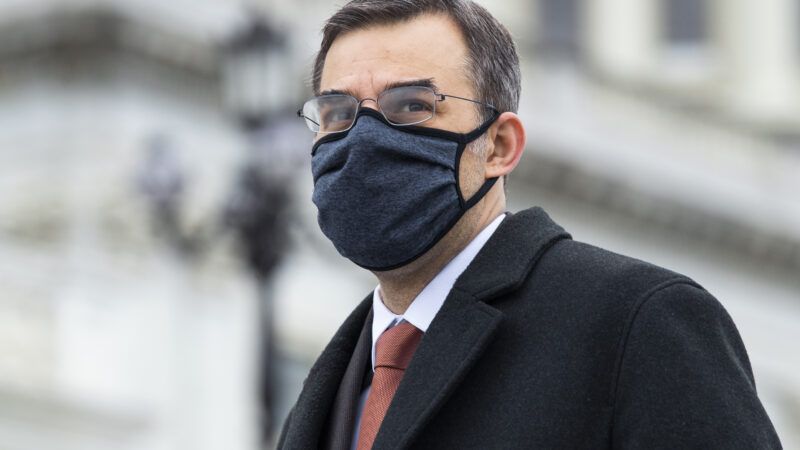Justin Amash Introduces Bill To End Forever National Emergencies
Current law can allow the president to route around Congress indefinitely.

Today Rep. Justin Amash (L–Mich.) unveiled the National Emergencies Reform Act, a bill to rein in presidential statutory control over emergency powers.
Under current law, the executive office can invoke a national emergency to enact a policy that lawmakers might otherwise reject. Such a declaration can go on without an end in sight: The National Emergencies Act (NEA) currently holds that an "emergency" is only over when the president says it is, or when Congress passes a veto-proof resolution.
Of the 69 national emergencies declared since the NEA's inception in 1976, 35 are still ongoing. Seven originated with President Donald Trump, 10 with President Barack Obama, 11 with President George W. Bush, and six with President Bill Clinton. The remaining one dates back to the reign of Jimmy Carter.
Amash's legislation would automatically sunset an emergency declaration after 60 days unless a simple majority of Congress votes to keep it alive. If Congress is unable to meet during that timeframe, it would have 48 hours to approve its continuation once it reconvenes.
"Going back to the Framers of the Constitution, Americans have recognized the president's inherent power as chief executive to act swiftly and unilaterally in an emergency. But such power exists only so long as Congress has no opportunity to act," Amash explained in a statement. "Laws like the National Emergencies Act are not—and, under our Constitution, cannot be—grants of legislative powers to the president. Too often, emergencies are being invoked without appropriate justification, and the transition of power back to Congress isn't happening. My bill will restore constitutional balance to these situations by limiting the duration of presidential emergency declarations without restricting the president's ability to act in true emergencies."
Most of the emergency declarations involve foreign sanctions. But not all of them: Trump, for instance, used the NEA to divert $8 billion for a wall at the U.S.-Mexico border, money Congress had declined to appropriate. It was the first time a president had successfully used the NEA to nab some taxpayer dollars after getting a "no" from the legislature. It was also the first time that both the Senate and the House approved a resolution to end an emergency declaration, though Trump refused to sign it. The so-called emergency is still ongoing.



Show Comments (104)